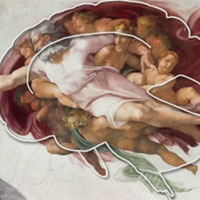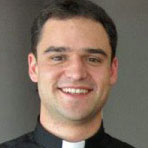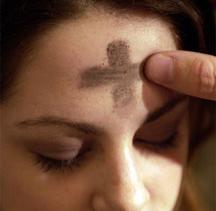Clare, a newcomer to this blog, has posted many comments in the last 24 hours relating especially to my posts on homosexuality.
I have been asked to state whether or not I agree with certain sections of the Catechism, and respond to a few other queries.
I’m happy to oblige. Clare is asking me to respond in my capacity as a Catholic priest. Priests are not only public figures, but also servants of the Church. I think any Catholic is entitled to query a priest’s position vis a vis Catholic teaching. Moreover, I applaud it. In the words of Fulton Sheen:
Who is going to save our Church? Not our bishops, not our priests and religious. It is up to the people. You have the minds, the eyes, the ears to save the Church. Your mission is to see that your priests act like priests, your bishops like bishops and your religious act like religious.
So, in response to Clare’s request:
Doctrinal clarification
I hereby confirm and state officially that I wholeheartedly accept Catholic teaching on homosexuality, as it is related in the Catechism. Specifically, I accept that “homosexual acts are intrinsically disordered” (2357), and “homosexual persons are called to chastity.” (2359)
That’s not a glib statement on my part. I take seriously my duty to “think with the mind of the Church.” I was ordained to proclaim the Gospel of Jesus Christ, not to promote my own views.
Insofar as anything I have written on this blog implies the contrary, I apologise. That was not my intention.
I do not, however, retract anything I’ve written. I am accused of being ambiguous. I accept that Catholic teaching is not ambiguous. But I do insist that Catholic teaching is nuanced. The Church dares to pronounce on such mysteries as the unutterable depths of the human heart and the ineffable mercy of God. Chesterton is right to characterise “the thrilling romance of orthodoxy:”
People have fallen into a foolish habit of speaking of orthodoxy as something heavy, humdrum, and safe. There never was anything so perilous or so exciting as orthodoxy. It was sanity: and to be sane is more dramatic than to be mad.
It was the equilibrium of a man behind madly rushing horses, seeming to stoop this way and to sway that, yet in every attitude having the grace of statuary and the accuracy of arithmetic.
The Church in its early days went fierce and fast with any warhorse; yet it is utterly unhistoric to say that she merely went mad along one idea, like a vulgar fanaticism. She swerved to left and right, so exactly as to avoid enormous obstacles.
I can see why someone who does not know me, but who has encountered dissident priests, might find “many statements and views on this blog and many comments on this blog to be deeply confusing, worrying and troublesome.”
But I’d also like to think that my posts and comments are reconcilable with orthodoxy, and that this clarification facilitates that. In future, I will endeavour to more clearly articulate Catholic teaching.
A more detailed clarification on my pastoral approach follows.
Pastoral clarification
(1) How often do you preach on ‘true devotion’ to the Blessed Virgin Mary, and the power of Our Lady’s intercession?
Not often. In fact — to my shame — I don’t remember the last time I preached about this, and here we are in the month of May.
(2) How often do you preach on the intrinsic moral evils of contraception, abortion, lust, immodest fashions, masturbation and fornication? NB: the Blessed Virgin Mary said at Fatima that most people go to Hell bc of sins of the flesh.
I have never preached about lust or modesty or masturbation or fornication. I have preached about contraception and abortion only rarely. However, I do broach these subjects in other fora.
(3) How often do you preach or inform your parish about mortal sin and the fact that a single mortal sin will send a person to hell for all eternity?
I have never preached about this.
(4) How often do you preach or inform your parish that the ONLY way to be forgiven with 100% confidence and certainty of mortal sin is through the sacrament of confession? (perfect contrition alone is never certain)
I have never preached this. However, I often exhort people to avail themselves of sacramental confession.
(5) How often do you inform your parishioners that unless they confess every single mortal sin since their last VALID confession then their present confession is NOT valid and in fact they have committed the further sin of sacrilege.
I don’t preach this, but I frequently relate this teaching within the confessional.
(6) Have you managed to increase the rates of confession in your parish? Have you managed to encourage monthly and weekly confessions?
Yes. But not enough. Pray for this apostolate!
(7) Have you been able to get people to return to confession and make a good general confession to ensure they are free from mortal sin and therefore free from going to hell?
Yes. But not enough. Pray for this apostolate!
(8) Do you make sure that you do NOT give the Blessed Sacrament to a person when you are AWARE that they are a divorcee, practicing homosexual, use contraception or support abortion?
I’m not sure this is a very helpful question. In fact, I’d go so far as to say it is impertinent. I’ve never knowingly given communion to any person so described. But nor have I ever investigated my communicants. Nor will I.
(9) How often do you preach on the fact that there is no salvation outside the Catholic Church and outside of Christ (as properly understood of course) and that the Catholic religion is the one and only true religion?
I have never preached about this.
(10) How often do you tell your parishioners that as faithful Catholics they cannot and must not vote for intrinsic moral evils like contraception and same-sex marriage, since the Church teaches you can never support or give way to an intrinsic moral evil?
I have never preached about this.
As Clare acknowledges, this clarification on my pastoral approach is quite different to the clarification on my doctrinal position. I suspect that some of my answers will dissatisfy some readers, but even so, these answers don’t necessarily mean I’m unfaithful or heretical.
I believe in hell. I believe souls can and do go to hell. I believe souls in my care might go to hell, and I believe that I might go to hell myself. This worries me, and it’s an object of my prayers.
Pray for me and for all priests.






Since this post was in response to my queries it is important that I make some comments on the post.
Firstly, we can all be very pleased that Fr. John has confirmed his loyalty to the teaching magisterium of the Church.
What we see here aside from Fr. John’s confirmation of his doctrinal orthodoxy is a clear understanding of the crisis in the Church. Because he realises how pervasive modernism is – for example most theology departments in almost all universities have to varying degrees compromised theologians to varying degrees of dissent. Oddly, philosophy departments have remained rather strong and faithful.
Because Fr. John knows this he does not take the queries personally, but rather freely embraces and responds to them in line with the ‘true’ spirit of Vatican II.
We also see how Fr. John does not need to be worried in answering these questions that most would avoid because of his doctrinal orthodoxy. He can have no worry about confirming his fidelity to the Pope and magisterium.
Fr. John knowing the crisis in the Church can therefore say:
“I can see why someone who does not know me, but who has encountered dissident priests, might find “many statements and views on this blog and many comments on this blog to be deeply confusing, worrying and troublesome.”
That of course is easily fixed when one confirms their doctrinal orthodoxy which Fr. John has done.
Now some other reflections are in order. Regarding the response to the pastoral clarifications of Fr. John keep in mind that none of these responses in any way impact the fact that he is an orthodox and faithful priest nor do they in any way imply that he may be lacking in sanctification.
What they may do, is perhaps make him consider whether there may be a need to address any one of these topics and issues. My personal opinion on the matter is that they are crucial and must be addressed. The biggest crisis we see in the Western Church is the absolute disintegration of confession, so perhaps this might be the most pressing issue. However, let’s be clear again. While I hope that Fr. John may consider addressing and changing his current approach on these issues, it in no way has any bearing as to the fact he is a faithful and orthodox priest.
Regarding the response to question (8), a simple “no” would have sufficed but Fr. John’s answer was perfect and reflects faithful and orthodox pastoral canonical practice.
Two comments were a little unsettling and I wish to provide some opinions on them.
Regarding Fr. John’s honest admission in question (1) of the pastoral clarification that he feels some shame about not preaching enough on the intercession of the BVM, it sounds like a little self-abrogation which is concerning. Let’s be clear. There is no harder job in the entire world then being a priest or bishop. A priest is directly responsible for the salvation of souls. You will never find a harder cross and greater burden then being in the ministerial priesthood.
Consequently, let’s not worry about honest mistakes even if it involves not preaching about the BVM – she is more Mother then Queen and is happy to overlook our flaws. Rather than allow Satan to make us feel shameful let’s have a firm purpose of amendment to do a sermon on the rosary or perhaps a story of Marian miracles like Fatima, Guadalupe or even on True Devotion by Montfort.
The second troubling comment came towards the end where Fr. John said
“I believe that I might go to hell myself. This worries me, and it’s an object of my prayers.”
Lets be clear. While we are not Protestants who think we can never loose our salvation and realize that a single mortal sin will damn us, we also know that God is incredibly kind and merciful.
Therefore, even though we cannot depend on ourselves we know we can rely on God to ensure we are saved. So while avoiding both the sins of presumption and despair we can have a very healthy and confident trust that we WILL be saved – and this most certainly includes Fr. John. The theology behind not being presumptuous is the fact that since we are not in heaven yet that means we are not yet saved and if Fr. John wanted, he could use his free will to reject God and for example join the Satanists or become a murderer and in doing so reject God. Clearly, this is never going to happen and since he wants to be saved he can have every confidence that he will be ensured of his salvation.
This all comes down to divine mercy. Once we realize sin and the need for repentance then we can embrace mercy and have confidence in God’s salvation.
Perhaps my pastoral suggestions may help Fr. John. I hope he may consider them. Fr. John’s responses were honest and some of them like his response to question 8 were spot on. Perhaps he may consider changing his approach on others.
Keep in mind that a priest has the hardest job in the world. People will persecute you and the world will hate you. St. John Vianney said:
“You cannot please both God and the world at the same time. They are utterly opposed to each other in their thoughts, their desires, and their actions.”
St John Vianney also said:
“Do not try to please everybody. Try to please God, the angels, and the saints—they are your public.”
Your friends and congregants will likely not express the level of gratitude they should and may have to come across evil from inside the Church and dissidents.
As a priest this is your beautiful act of penance for the salvation of souls. Never worry when you preach about the need for confession or the moral evil that is abortion and contraception. God is with you and loves you. Clearly you have charity and compassion finely tuned and so presenting the glorious truths of the Church in the necessary loving and compassionate way will not be an issue for you. The beauty of the religion is that a homosexual need not worry or despair but look forward to supernatural paradise.
Regarding your salvation, I can assure you that with your comments on this post you will be saved. I will be dedicating a divine mercy chaplet specifically for the intention of God granting you final perseverance and assuring you of your salvation, including asking the Blessed Virgin to intercede for you especially as your hour of death approaches to assure your salvation.
Now, previously we considered some comments from the Fathers, Doctors and Saints about the people who choose to go to Hell. That is very important to realize that we have a job and evangelizing mission on Earth. But now lets ask the question what say of the people who want to be saved? What do the Saints say about that? Perhaps these comments will make you realize you need not ever worry about you going to Hell as long as you TRUST in God. Even if you fall here or there if you just TRUST in God you will be fine bc you are not the one saving yourself, its God and if you TRUST in Him he will through grace lead you back into the state of grace always and ensure you have final perseverance.
These quotes relate just to the divine mercy chaplet, the Rosary and devotion to Our Lady. You take the Body and Blood of Christ every single day and say the Divine Office. Imagine how much stronger your spiritual grace is and how much more confidence you can have that you will be saved.
Here are some quotes I reflect on weekly:
ON HOW PRAYER WILL SURELY SAVE YOU
“Those who pray are surely saved and those who do not pray are surely lost.”
– St Alphonsus Ligouri – Doctor of moral theology
ON HOW DIVINE MERCY WILL SURELY SAVE YOU – FROM THE DIARY OF ST. FAUSTINA
“Say unceasingly the chaplet that I have taught you. Whoever will recite it, they will receive great mercy at the hour of death. … Even if there were a sinner most hardened, if he were to recite this chaplet only once, he would receive grace from My infinite mercy” (Diary, 687).
– Diary of St. Faustina
“At the hour of their death, I defend as My own glory every soul that will say this chaplet ” (Diary, 811).
– Diary of St. Faustina
“It pleases me to grant everything souls ask of me by saying the chaplet. When hardened sinners say it, I will fill their souls with peace, and the hour of their death will be a happy one… when a soul sees and realizes the gravity of its sins, when the whole abyss of the misery into which it immersed itself is displayed before its eyes, let it not despair, but with trust let it throw itself into the arms of My mercy, as a child into the arms of its beloved mother. Tell them no soul that has called upon My mercy has been disappointed or brought to shame. I delight particularly in a soul that has placed its trust in My goodness.” (Diary, 1541).
– Diary of St. Faustina
ON HOW DEVOTION TO THE BLESSED VIRGIN MARY WILL SURELY SAVE YOU
“No matter how sinful one may have been, if he has devotion to Mary, it is impossible that he be lost.”
– Saint Hilary of Poitiers – Bishop, Father, and Doctor of the Church
ON HOW THE ROSARY WILL SURELY SAVE YOU
‘If you say the Rosary faithfully until death, I do assure you that, in spite of the gravity of your sins “you shall receive a never-fading crown of glory.” Even if you are on the brink of damnation, even if you have one foot in hell, even if you have sold your soul to the devil as sorcerers do who practice black magic, and even if you are a heretic as obstinate as a devil, sooner or later you will be converted and will amend your life and save your soul, if – and mark well what I say – if you say the Rosary devoutly every day until death for the purpose of knowing the truth and obtaining contrition and pardon for your sins.’
– St. Louis Marie de Montfort